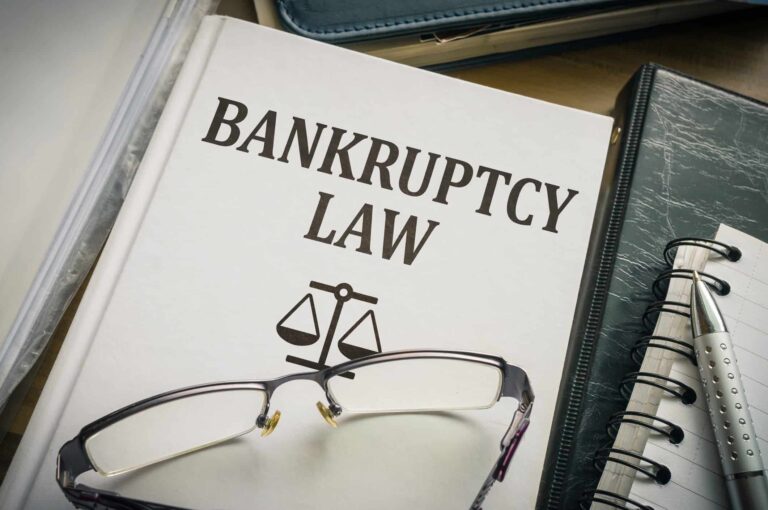If I’m Being Sued Can I File for Bankruptcy?

If you are facing a lawsuit from a creditor or collections agency, there are three common responses: filing a timely answer to their complaint, negotiating a settlement before your answer is due, or filing for bankruptcy.
Whatever the case, you need to respond in some way or risk being hit with a default judgment by the courts without taking the opportunity to dispute claims. Many people believe they cannot file for bankruptcy if they are being sued by a creditor, but collections lawsuits are a frequent cause of bankruptcy cases across the country.
Contact Deluca & Associates today and schedule a free consultation with our legal professionals.
How a judgment or lawsuit works
A lawsuit is a legal process that allows creditors to seek restitution from another party. When a creditor wins their lawsuit, the court orders a judgment. The steps involved in securing a judgment are as follows:
- Creditor issues a statement of claim
- Creditor files paperwork with the court initiating lawsuit
- Court rules in the plaintiff’s favor
- The court orders a judgment
To prevent a judgment, you must respond to the statement of claim and present compelling evidence in your defense. Otherwise, the court will rule in the creditor’s favor. Once the court rules for the creditor, they can seek garnishment against your wages.
Will a lawsuit affect my bankruptcy?
A lawsuit can affect your bankruptcy, but it depends on the nature of the lawsuit and the judge’s ruling. Suppose you file for bankruptcy after a creditor files a civil lawsuit. In that case, the lawsuit only proceeds if authorized by the bankruptcy judge. The judge may also determine that the creditor’s lawsuit should be moved to the bankruptcy court.
How bankruptcy stops civil lawsuits
Filing bankruptcy usually stops civil lawsuits, enabling you to avoid a judgment. When creditors seek a judgment, and you file bankruptcy, they can file a claim that becomes part of your bankruptcy case, allowing them to recover funds owed when your bankruptcy is discharged.
What happens to your lawsuit when you file for bankruptcy?
When you file in bankruptcy court, an automatic stay comes into play. This prevents your creditors from collecting any debt from you until a judgment is made on your claim. Collections agencies have to stop calling you, garnishments and threats of foreclosure come to an end, and any creditor’s lawsuit has to be shelved.
What is the automatic stay in bankruptcy?
An automatic stay or injunction is like hitting the pause button on your legal issues. The automatic stay prevents some creditors from seeking repayment for debts owed. An automatic stay does not apply to some financial obligations, such as child support payments, and creditors can file a motion seeking relief from the automatic stay. If the courts approve the motion, the creditor can continue to seek repayment for the debt owed.
Is bankruptcy a civil judgment?
A civil judgment is a court’s ruling following a civil lawsuit. Bankruptcy is not a civil judgment because it doesn’t involve a lawsuit.
Types of civil lawsuits bankruptcy stops
Civil lawsuits initiated because of debts owed usually stop when you file a bankruptcy case. Types of civil lawsuits suspended when you file bankruptcy include the following:
- Breach of contract
- Credit card debt cases
- Debt collection cases
- Foreclosures
- Personal injury cases
Filing bankruptcy also suspends legal action between you and your business partners if the legal action stems from financial disputes. It may suspend eviction proceedings if the courts haven’t issued a ruling before you file.
What types of lawsuits are not stopped by filing bankruptcy?
You may file for Chapter 7 bankruptcy or Chapter 13 bankruptcy to resolve your debts. Your bankruptcy filing stops some civil lawsuits from proceeding. However, filing for bankruptcy has no impact on other legal matters. Types of lawsuits that continue after a bankruptcy filing include the following:
- Alimony cases – Nevada still awards alimony in some cases, and former spouses can seek it during or after their divorce.
- Criminal cases – Government attorneys initiate criminal cases when a person’s charged with a crime. Bankruptcy cases have no impact on criminal trials.
- Child custody and support – Cases involving custody of minor children or child support payments continue after you file for bankruptcy. Child support payments aren’t discharged in bankruptcy filings, and payment obligations aren’t suspended when you file bankruptcy.
- Divorce actions – Whether you or your spouse initiated divorce proceedings, your bankruptcy won’t impact your case.
- Evictions – Your bankruptcy filing won’t stop your eviction if the landlord has already received a judgment in their favor.
Filing for bankruptcy before being sued
If the debt you’re being sued over is the only debt you carry, it may be better to file an answer. Unfortunately, you will still be subjected to court and legal fees that will probably result in a higher overall cost than filing for Chapter 7. If you have many outstanding debts and several looming lawsuits, filing for bankruptcy may be the best move. You will still be subject to filing and other legal fees, but once they’re paid, you will have removed the vast majority of your debt at once.
Filing for bankruptcy with a judgment already against you
If you already have a judgment against you in a lawsuit, your treatment by the bankruptcy court will not be affected. You still get the automatic stay to prevent any attempts to execute your judgment, and what you owe in your lawsuit counts as unsecured debt that can be discharged.
If you are currently being sued by a debtor or anticipate a case being filed in the future, you should contact a Las Vegas bankruptcy attorney to see if filing for bankruptcy is the right option for you. For more information, contact DeLuca & Associates at (702) 935-4714 for a free consultation.
Filing bankruptcy after losing a lawsuit
You can file for bankruptcy after a civil judgment against you in a lawsuit. Still, your bankruptcy filing may not discharge those debts. Debts not discharged by your bankruptcy include the following:
- Alimony – Alimony payments are payments owed to a former spouse. These debts aren’t suspended or discharged during bankruptcy proceedings.
- Child support – You must continue making court-ordered child support payments during and following bankruptcy proceedings.
- Judgment lien – When a creditor receives a judgment lien against your property, it prevents you from selling it. The creditor has the right to take possession of the property as compensation for your debts unless you pay the court-ordered judgment to the creditor.
- Tax debts – You’re still responsible for paying any taxes owed after filing for bankruptcy.
When you file for bankruptcy, you can claim exemptions, enabling you to retain essentials such as a residence, vehicle, and work tools. Avoiding a judgment lien is one reason to file for bankruptcy before a court awards a judgment to the plaintiff. You can also avoid a fraud judgment from your civil lawsuit. Bankruptcy filings do not discharge debts in cases where the court awards a fraud judgment.
How can a bankruptcy attorney help you?

Dealing with lawsuits and bankruptcy can be stressful and frustrating. An experienced Las Vegas bankruptcy attorney can help you find answers to your questions and learn about the options you can consider to resolve your legal and financial issues.
Whether a creditor has already initiated a lawsuit or you’re struggling with financial issues and expect a creditor to take legal action, it’s never too soon to seek legal counsel and get expert guidance from an attorney with decades of experience in bankruptcy law.
Contact our Las Vegas bankruptcy attorney today to get expert legal guidance.
Sources:
Kagan, J. (2020). Judgment Lien: Definition, Examples, Vs. Property Lien.
O’Neill, C. (2022). Nevada Bankruptcy Exemptions.
Search Legal Terms and Definitions: Restitution: (2023).
Statement of claim. (2023).
What is a judgment? (2022).






